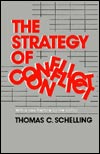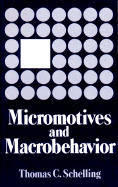Untitled Document
Thomas Schelling and Robert Aumann, the Nobel Prize winners who see
war as a game
The two winners of the 2005 Nobel Economics Prize, Thomas C. Schelling and
Robert J. Aumann, received the award for their contribution to the “Game
Theory”. In fact, Thomas C. Schelling was the theoretician of the military
escalation during the Viêt-Nam war and he currently justifies the US decision
not to sign the Kyoto Protocol and to ignore the UN Millennium Objectives. Robert
J. Aumann is an esoteric Talmudist who has theorized about the use of collective
punishment to oppress Palestinians.
The 2005 Nobel Economics Prize was granted by the Swedish Bank, on October 10th,
to Robert J. Aumann and Thomas C. Schelling for their work on “Game Theory”.
The jury noted in their communiqué that these works led to a rational knowledge
of human behaviour using a model that can be applied to political and economic
negotiations, thus contributing to a rapprochement between economic sciences and
all the other sciences.
Probably considering that the Bank of Sweden enjoys the infallibility of the
Pope, the media echoed the news and applauded the winners without worrying about
the exact nature of their work and its use or the reasons that may have led
to the jury’s choice.
Robert J. Aumann, theoretician of military oppression
But let us leave aside the somewhat folkloric case of cabbalistic mathematician
Robert J. Aumann, whose main contribution to humanity seems to have been the
application of the Game Theory to the reading of Tamud, particularly for the
resolution of a cruel dilemma about the distribution of the inheritance of a
dead husband among three widows. The laureate also became known for his esoteric
research about the hidden codes of the Torah.
Robert J. Aumann also theorized about the application of the principle of “forceful
cooperation” due to the “fear of punishment” in the treatment
given to the Palestinians, a method that, by establishing collective punishment,
violates international conventions. Aumann is a member of an extremist organization,
Professors for a Strong Israel, which he himself helped create to sabotage the
Oslo accords. Robert J. Aumann, who defends the Great Israel upon a Jewish racial
foundation, opposes the creation of a Palestinian state and currently is part
of a campaign against Ariel Sharon and in favour of the annexation of the Gaza
Strip.
But let us focus on the exemplary case of the other laureate.
Thomas C. Schelling, theoretician of the military escalation
Born in 1921, Thomas C. Schelling studied economics at the University of Berkeley
during World War II. Later, in 1945, he entered the Federal Budget Bureau while
he was preparing his doctorate in Harvard. In 1948 he worked in Paris with the
US ambassador Averel Harriman in the implementation of the Marshall Plan.
The Harriman family had become one of the richest ones in the United States
after the construction of the Pacific railroad. During the 1930s, Averell had
given his financial support in Germany to Chancellor Hitler, whose thesis in
favour of eugenics he shared as much as his anticommunist obsession. However,
in 1941, Averell Harriman changed sides after he considered that the Nazi imperialism
was a threat to Anglo-Saxon sea dominance. Then, Harriman’s businesses
were run by his proxy Prescott Bush (George W. Bush’s grandfather) and
his defender in the legal field was the cabinet of Allen Dulles (future CIA
chief).
The Marshall Plan was a project to reconstruct Europe, which objective was
to secure the US investments through the creation of an internal market and
to influence political processes in order to prevent the communists from accessing
power through the democratic way.
When President Truman appointed Harriman Secretary of Trade, Schelling followed
him to Washington where he was integrated to the presidential team in charge
of international trade affairs. He lost his post due to the electoral defeat
of the Democrats and for several years he taught at the University of Yale.
In 1958, he was recruited by the Rand Corporation, the think-tank (research
centre for propaganda and spreading of ideas, mainly of a political nature)
out of which President Eisenhower would later devise the “industrial and
military complex”. That institution, until then dedicated to the study
of new weapons, began to work on a new strategic thinking with intellectuals
such as Herman Khan and Albert Wohlstetter (Richard Perle’s father-in-law).
There, Thomas C. Schelling soon met mathematician Robert J. Aumann, with whom
he would later share the Nobel Prize.
 |
Immediately, Schelling was involved in negotiations about disarmament that
were taking place in Geneva. They took place under the direction of Paul Nitze,
the master of the Cold War, whose assistant was Albert Wohlstetter. They both
thought the atomic bomb was not dissuasive enough if the Soviet Union had the
ability to launch a flash attack across the world and to negotiate with the
Soviets the dismantling of their fastest missiles and their closest bases. The
Rand Corporation tried to rationalize the negotiation relying on the Game Theory
created by mathematician John von Neuman (who participated in the creation of
the US atomic bomb) and economist Oskar Morgenstern. Schelling began studying
the application of this theory to that case in particular and wrote a book on
the topic: The Strategy of Conflict [1]. According to him, dissuasion should
not be a game in which every player is afraid of losing the same as his opponent
but a mixture of competition and tacit cooperation. In the same way that a driver
tries to leave another car driver behind without taking him off the road, in
the Cold War it is possible to try to win in peripheral operation theatres without
starting the nuclear Apocalypses. For the benefit of those in the military industry,
this theory leads to the adoption of a strategy of gradual response instead
of leading to the destruction of all the rival’s big cities, that is,
to the conception of a variety of weapons besides the large number of powerful
bombs already in store.
However, at that time, the idea that prevailed in Washington was the “massive
response”. To prove the effectiveness of his theory, Thomas C. Schelling
resorted to his friend John McNaughton, main advisor to Defense Secretary Robert
McNamara. In September 1961, a simulation game was organized in Camp Davis in
which two teams, the Blues and the Reds, faced each other. Some high-ranking
officials such as Henry Kissinger and McGeorge Bundy participated.
Anyway, in 1964, national security advisor McGeorge Bundy, worried about the
possibility that the US officials could repeat in Viet Nam the same errors that
General Douglas MacArthur had committed in North Korea (he tried to “vitrify”
the country to get rid of the communists once and for all) he asked John McNaughton
and Thomas C. Schelling to create a gradual strategy, that is, a scenario that
included provocations and that would allow for an escalation that would force
the Vietnamese to cede. They both recommended the use of bombing campaigns of
increasing duration. The first, known under operational code Rolling Thunder,
took place between March 2 and 24, 1965. As it did not have any effects upon
the determination of the Vietnamese people, it was followed by others. Six million
tons of bombs later, Thomas C. Schelling’s game theory had left two million
people dead. [2]. Robert McNamara quit is post at the Defense Department to
devote himself to the presidency of the World Bank while Averell Harriman was
called to strengthen the team negotiating peace.
 |
After that disaster, Thomas C. Schelling came back to teach in Harvard although
he continued to work as an advisor for the CIA. It was then that he began to apply
the Game Theory to international trade negotiations and published Micromotives
and Macrobehavior (1978), a work that was followed by Choice and Consequences
(1984).
In 1990, after he retired as a university professor, Thomas C. Schelling joined
the Albert Einstein Institution, a research entity turned into a CIA affiliate
to plan the overthrow of regimes through “non violent” methods.
[3]. There, he participated in the organization of pseudo-revolutions in the
states of the zone formerly under Soviet influence. The most recent ones are
those of Georgia and Ukraine.
Thomas C. Schelling came into scene again in June 2002, when he published an
article in the Foreign Affairs magazine of the Council of Foreign Relations,
with large repercussion and in which he justified George W. Bush’s decision
not to ratify the Kyoto Protocol. [4]. According to him, the relation between
the emission of gases that cause the greenhouse effect and global warming is
not clearly proven and no state is seriously carrying out big efforts to reduce
it. The more important thing here is that the mechanism of the Kyoto Protocol
is based on the acceptance of generous principles made by Nobel Prize laureates
and not on a system of mutual concessions. The professor later explains that
there are only three successful experiences of multinational economic commitment:
the Marshall Plan, NATO and the World Trade Organization. In all cases, the
United States first established the rules and later set up a system of regulations
through which each state justifies itself before the others and watches the
others, so, the United States imposes a rule and does not have to play a police
role.
During the spring of 2003, Thomas C. Schelling was one of eight experts that
Bjorn Lomborg called to Copenhagen to assess the objectives of the millennium,
that is, the programs established by the United Nations, during a meeting promoted
by The Economist and financed by the Sasakawa Foundation [5]. The final document,
known as the Consensus of Copenhagen, relegates the reduction of gases that
cause the greenhouse effect to a 17th position and focuses on more lucrative
objectives such as (1) the production of medicines against HIV/Aids with an
exploitation license; (2) the spread of GMOs to fight malnutrition and (3) the
lifting of customs barriers.
While the work of Thomas C. Schelling has proven to be inoperative, and thus
scientifically wrong, it has made a significant contribution to our time as
it has showed that US authorities use the same tools to deal with war and international
trade. As to his former colleague and co-winner of the Nobel Prize, Robert J.
Aumann, after dreaming of biblical numerology transformed the Israeli crimes
into mathematical formulas to show how the Israeli settlers could oppress the
Palestinians. It is very unlikely that, by granting them this honour, the Bank
of Sweden has honoured the Nobel institution.

